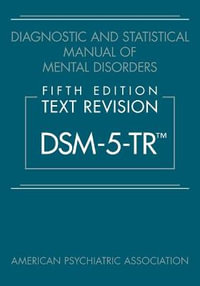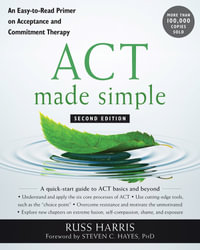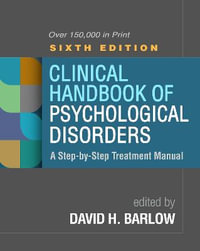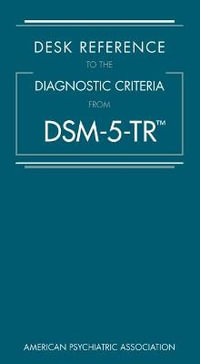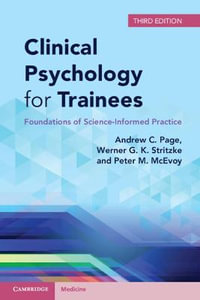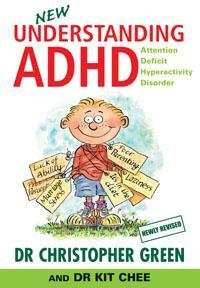
Desperate Remedies
Psychiatry's Turbulent Quest to Cure Mental Illness
By: Andrew Scull
Hardcover | 17 May 2022
At a Glance
512 Pages
24 x 16 x 3.5
Hardcover
Limited Stock Available
$60.35
or 4 interest-free payments of $15.09 with
orA Washington Post Notable Work of Nonfiction
A Telegraph Book of the Year
A sweeping history of American psychiatry-from the mental hospital to the brain lab-that reveals the devastating treatments doctors have inflicted on their patients (especially women) in the name of science and questions our massive reliance on meds.
For more than two hundred years, disturbances of the mind-the sorts of things that were once called "madness"-have been studied and treated by the medical profession. Mental illness, some insist, is a disease like any other, whose origins can be identified and from which one can be cured. But is this true?
In this masterful account of America's quest to understand and treat everything from anxiety to psychosis, one of the most provocative thinkers writing about psychiatry today sheds light on its tumultuous past. Desperate Remedies brings together a galaxy of mind doctors working in and out of institutional settings: psychologists and psychoanalysts, neuroscientists, and cognitive behavioral therapists, social reformers and advocates of mental hygiene, as well as patients and their families desperate for relief.
Andrew Scull begins with the birth of the asylum in the reformist zeal of the 1830s and carries us through to the latest drug trials and genetic studies. He carefully reconstructs the rise and fall of state-run mental hospitals to explain why so many of the mentally ill are now on the street and why so many of those whose bodies were experimented on were women. In his compelling closing chapters, he reveals how drug companies expanded their reach to treat a growing catalog of ills, leading to an epidemic of over-prescribing while deliberately concealing debilitating side effects.
Carefully researched and compulsively readable, Desperate Remedies is a definitive account of America's long battle with mental illness that challenges us to rethink our deepest assumptions about who we are and how we think and feel.
Industry Reviews
[A] comprehensive, sober, and compulsively readable history of psychiatry...Scull's book is an effort to provide a sight line through the often turbulent currents of the field, touching on its strengths and (mostly) its shortfalls, from the start of the psychiatric endeavor to the present moment...Scull has joined his wide-ranging reporting and research with a humane perspective on matters that many of us continue to look away from. -- Daphne Merkin * The Atlantic *
Brimming with wisdom and brio, this masterful work spans the history of modern psychiatric practice, from the abject horrors of Victorian asylums to the complexities surrounding the diagnosis and treatment of mental illness to this day. Exceedingly well-researched, wide-ranging, provocative in its conclusions, and magically compact, it is riveting from start to finish. Mark my words, Desperate Remedies will soon be a classic. -- Susannah Cahalan, author of Brain on Fire and The Great Pretender
This is a chilling book...Scull's fascinating and enraging book is the story of the quacks and opportunists who have claimed to offer cures for mental illness...Madness remains the most fascinating-arguably the defining-aspect of Homo sapiens. But it's too hard for most of us to think about. And in Scull's harrowing account, this is in large measure because the majority of those drawn to its treatment have been morally or scientifically bankrupt. Often both. -- Sebastian Faulks * Sunday Times *
Meticulously researched and beautifully written, and even funny at times, despite the harrowing content. This is a history of serious mental illness-schizophrenia, bipolar disorder, severe depression-and there is no happy ending...Scull writes passionately of the need for a broader approach, embracing more than the biological paradigm. -- Rebecca Lawrence * The Guardian *
Scull is especially critical of the last 20 years when research narrowed its focus onto possible biological factors for mental illness. The lack of concern with the social and psychological dimensions of mental disturbance, he argues, has precipitated inequities in treatment and led to the consignment of the mentally ill to the streets and jails of this country. -- Thomas Curwen * Los Angeles Times *
An important plea for psychiatrists not to be seduced into offering a cure that is worse than the disease...Scull's engaging account of the development of psychiatry and psychiatric treatments since the 19th century shows history repeating itself many times over...The grisly part of Scull's story is not gratuitous. It is the context from which modern drugs such as antidepressants and antipsychotics emerged...Desperate Remedies is a reminder of the tragic and barbarous measures that have often been inflicted on people in the name of curing mental disturbance. -- Joanna Moncrieff * Literary Review *
One of the more important contributions to the field...the book is a deft achievement of writing... Scull has pulled off an impressive feat of tone, bringing wit and an eye for the absurd to bear on a bleak topic, without ever losing a forceful undercurrent of moral outrage. Second, the book displays an expert command of history...Skillfully balancing the epochal with the particular, Scull has an eye for a great yarn and a knack for rendering the colorful characters of psychiatric history in three dimensions. No book on the history of psychiatry better captures the texture and feel of the different periods under discussion. -- Owen Whooley * American Journal of Sociology *
[A] grim but fascinating picture of American psychiatry since 1900...Tells of how, in search of continuously elusive causes of severe mental illness and the equally elusive cures, and with a captive and often stigmatized clientele, pioneering psychiatrists permitted themselves to engage in human experimentation on an epic scale. And ended up pretty much no further advanced than when they had started...[An] absolutely essential, deeply felt and horribly absorbing book. -- David Aaronovitch * The Times *
[A] searching and enlightening history...[Scull] comes across as wise, sanguine, and unsurprised by his findings in this survey of how American...psychiatry has understood and treated the insane, distressed, and traumatized from 1820 to the present. His book, however, will leave readers who are unfamiliar with the story horrified and aghast...I would recommend this fascinating, alarming and alerting book to anybody. For anyone referred to a psychiatrist it is surely essential. -- Horatio Clare * The Spectator *
A provocative and often persuasive analysis of psychiatry...A must-read for those who have been-or fear they will be-touched by mental illness...If psychiatry is to survive, Scull concludes, psychiatrists must be more candid about the limits of their knowledge. -- Glenn C. Altschuler * Psychology Today *
Scull is well aware that psychiatry has vacillated between treating 'the mind' with therapeutic dialogue and treating 'the body' with surgery and psychotropic drugs...The medical discipline has never known and still does not know what it is treating...Scull directs the reader's attention to the fact that after decades of research and billions of dollars spent, not a single biomarker for psychiatric sickness has been discovered. -- Siri Hustvedt * Washington Post *
Explore[s] the crisis in biological psychiatry, tracing the political, economic, social, and professional factors that led psychiatrists to attempt to pin the reality of mental illness-and the legitimacy of the profession-on the brain...A chilling account of a period characterized by an 'orgy of experimentation.'...Demonstrates that the foundations of biological psychiatry were built on violence inflicted on the bodies of women, the poor, and people of color...Impressive. -- Marco Ramos * Boston Review *
An intensely skeptical history and analysis of psychiatry. The gist of his argument is: Although there have been undeniable advancements, mental illness remains baffling, and no discipline has done a great job of treating symptoms and understanding causes...Scull...has written the best kind of 'feel-bad' book, lashing offenders left and right with his whip of evidence. Whether the vitriol resonates or alienates will depend on your matrix of experiences and beliefs. -- Molly Young * New York Times *
For me the greatest value of Desperate Remedies is the brilliant spotlight that [Scull]...shines on historical and current truths about psychiatry. There is an implicit plea that is interwoven throughout the book for a measure of relief from the 'devastating tragedy' that envelops people with mental illness...Medical students intending to train in psychiatry would be well served by the masterful perspective Scull provides and the penetrating questions he raises for the profession. -- Vivian B. Pender * The Lancet *
A blistering critique of contemporary psychiatry...He believes the field has made some progress over the past two centuries-but not much...Scull argues that there will always be limits to what medication or medical science alone can achieve because mental illness is not purely biological: our brains are shaped by developmental and environmental factors, and our thoughts and feelings are shaped by our social and cultural context. -- Sophie McBain * New Statesman *
A leading figure in the history of psychiatry, Scull is obviously passionate about the unhelpful directions psychiatry has taken...Desperate Remedies nods toward green shoots of progress in neuroscience and genetics, but there's no doubt, as Scull makes clear, that psychiatry in the US and the UK needs to up its game in response to increasing levels of psychiatric illness...Scull's history [is] a vital rallying cry. -- Julia Bueno * Times Literary Supplement *
[An] erudite, precise, blisteringly critical history of 200 years of psychiatry...Scull still holds out the narrow possibility that psychiatry has a future, if only it would calm down and own up to its limitations. -- Simon Ings * Sunday Telegraph *
Scull delivers a remarkable history of psychiatry in America...The final section...is a devastatingly effective chronicle of the rise of psychopharmacology and its tendency to regard all mental illnesses as potentially treatable with the right medication...This sweeping and comprehensive survey is an impressive feat. * Publishers Weekly (starred review) *
A carefully researched history of psychiatry, [it] provides a critical assessment of the psychiatric enterprise. In the rush to find cures for psychiatric illnesses, Scull believes that there has been a disappointing lack of focus on patients. -- Vivian B. Pender * Psychiatric News *
A comprehensive history of American psychiatry...Authoritative and sobering...Lays out the obstacles that all practitioners in the field have faced as successive methods of treatments-Freudian analysis, talk therapy, and medication-have come into vogue and then retreated...Because Scull's crisis-to-crisis history is so impeccable, it's also deeply troubling. * Kirkus Reviews (starred review) *
Scull...is interested in the grisly particulars of treatment, and also more broadly in the construction over time of a profession, psychiatry, that has never quite functioned independently: always borrowing, always distancing itself, from other branches of medicine. Desperate Remedies is unconsoling about this history and what it suggests for the future. -- Brian Dillon * 4Columns *
Desperate Remedies is a riveting chronicle of faulty science, false promises, arrogance, greed, and shocking disregard for the wellbeing of patients suffering from mental disorders. An eloquent, meticulously documented, clear-eyed call for change. -- Dirk Wittenborn, author of Pharmakon
Desperate Remedies is a harrowing, heart-pounding history that will leave you gasping. Andrew Scull vividly transports us to the dismal asylums and experimental operating rooms that haunt psychiatry's past and then links that tragic era with our prescription-happy present. Dryly witty, but always compassionate, he shines a light on a century of medical mayhem and the horror it inflicted on the innocent. This is a riveting, powerful, and utterly astonishing read. -- Simon Rich, author of Hits and Misses
An immensely engaging-if often dismaying-account of American psychiatry. Scull impressively balances the social reality that constitutes 'mental illness' with the ever-shifting rationales used to explain such unsettling behaviors and emotions by those who have chosen to manage these elusive ills. Desperate Remedies is an important contribution to our understanding of a fundamental and still-contested aspect of human experience. -- Charles Rosenberg, author of The Care of Strangers
Andrew Scull weighs American psychiatry in the balance and finds it seriously wanting. So this may not be the best introductory text for an aspiring medical student. But it is required reading for anyone who appreciates great writing, insight, and outstanding scholarship-just the kind of people we want doing psychiatry. -- Sir Simon Wessely, King's College London
[Scull] is the best historian of psychiatry known to me. He writes elegantly and without jargon, is fair-minded...has a true writer's eye for the dramatic detail, and is never dull...Magisterial. -- Theodore Dalrymple * Claremont Review of Books *
Recounts in detail many shameful episodes from psychiatry's past...Scull wants his readers to think probingly about who truly needs psychiatrists, and why. -- Stephen Eide * City Journal *
Scull's tour-de-force history of psychiatry, from the birth of the asylum in the 1830s to today, is an essential book for our times. -- Bertie Bregman * Commentary *
Scull tells the story of psychiatry in the United States from the 19th-century asylum to 21st-century psychopharmacology through its dubious characters, its shifting conceptions of mental illness and its often-gruesome treatments. * Washington Post *
No book on the history of psychiatry better captures the texture and feel of the different periods under discussion...Any sociologist interested in any facet of mental health-in any era-would be wise to read it once through, add it to their working library, and return to it over and over for its brimming insight. -- Owen Whooley * American Journal of Sociology *
ISBN: 9780674265103
ISBN-10: 0674265106
Published: 17th May 2022
Format: Hardcover
Language: English
Number of Pages: 512
Audience: Professional and Scholarly
Publisher: Harvard University Press
Country of Publication: US
Dimensions (cm): 24 x 16 x 3.5
Weight (kg): 0.76
Shipping
| Standard Shipping | Express Shipping | |
|---|---|---|
| Metro postcodes: | $9.99 | $14.95 |
| Regional postcodes: | $9.99 | $14.95 |
| Rural postcodes: | $9.99 | $14.95 |
How to return your order
At Booktopia, we offer hassle-free returns in accordance with our returns policy. If you wish to return an item, please get in touch with Booktopia Customer Care.
Additional postage charges may be applicable.
Defective items
If there is a problem with any of the items received for your order then the Booktopia Customer Care team is ready to assist you.
For more info please visit our Help Centre.
You Can Find This Book In
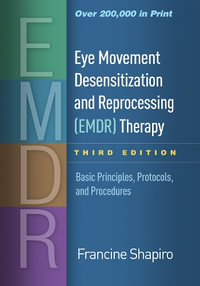
Eye Movement Desensitization and Reprocessing (EMDR) Therapy
Basic Principles, Protocols, and Procedures 3rd Edition
Hardcover
RRP $161.00
$138.00
OFF
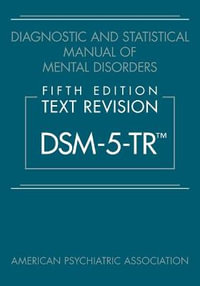
Diagnostic and Statistical Manual of Mental Disorders 5/e TR (DSM-5-TR)
Diagnostic and Statistical Manual of Mental Disorders
Hardcover
RRP $347.00
$306.90
OFF
This product is categorised by
- Non-FictionMedicineOther Branches of MedicinePsychiatry
- Non-FictionPsychology
- Non-FictionScienceScience in GeneralHistory of Science
- Non-FictionSociety & CultureSocial Issues & ProcessesSocial Aspects of Illness & Addictions
- Non-FictionSelf-Help, Personal Development & Practical AdvicePopular Psychology
- BargainsNon-Fiction BargainsScience Bargains
- BargainsNon-Fiction BargainsBusiness, Finance & Self Help
- BargainsNon-Fiction BargainsFamily & Relationships Bargains
- BargainsNon-Fiction BargainsMedicine Bargains
